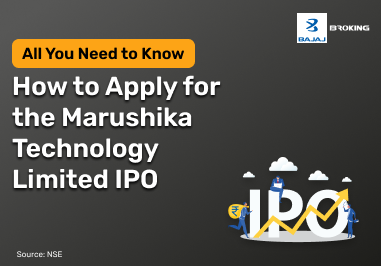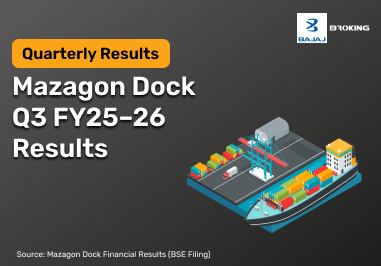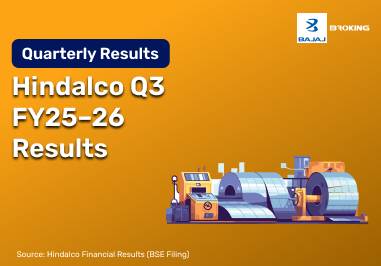In India's constantly changing financial landscape, the SME IPO is an exciting and increasingly accessible investment option for the average person. It gives people a unique opportunity to participate in the growth journey of small and medium-sized enterprises (SMEs). What sets an SME IPO apart from any other investment is the unique nature of the investment itself - investors are connected to small and medium-sized enterprises - the backbone of the economy that creates jobs, fosters innovation, and supports the local economy.
An SME IPO lets these businesses go public and get money from investors. This money helps small and medium-sized businesses grow, become more productive, and reach more customers. When you buy shares in an SME IPO, you're not just buying shares. You're also helping local businesses and the economy grow from the ground up.
What is an SME?
Prior to discussing SME IPOs, it is beneficial to clarify what "SME" means. SMEs (Small and Medium Enterprises) are businesses operating with defined limits on their turnover, investment, and employee count. SMEs are very significant to the Indian economy for the jobs created, products made, and exports completed.
SME IPO Exchanges: Where are they listed?
In India, SME IPOs trade on separate facilities to reduce compliance and improve visibility and liquidity for small and medium enterprises (SMEs).
The Bombay Stock Exchange (BSE) operates the BSE SME Platform, enhancing the ability for small businesses to access capital and facilitating visibility and liquidity.
The National Stock Exchange (NSE) operates the NSE Emerge platform, which is designed to capitalise small and medium-sized enterprises quickly and conveniently.
What is an SME IPO?
So, what is an SME IPO, exactly? It means "Initial Public Offering for Small and Medium-sized Enterprises." With an SME IPO, smaller companies can get money by selling their shares to the public for the first time. This approach helps them get investors, pay for new projects, grow their business, and make their brand more well-known.
SME IPOs let smaller companies get into the capital markets sooner than large-cap IPOs. This opens up potential for fast expansion and diversification. It is a strong step that turns private firms into companies that are traded on the stock market.
Eligibility Criteria for SME IPOs
Before they may be listed, small and medium-sized businesses (SMEs) must meet several requirements to make sure they are financially stable and investors trust them:
Incorporation: The business must be registered with the Companies Act of 1956 or 2013.
Paid-up capital following the issue: It can't be more than ₹25 crore.
Net tangible assets: At least ₹1.5 crore.
Track record: At least three years of running the business.
EBITDA: Profit from operations for at least two of the last three years.
The debt-equity ratio should not be more than 3:1.
No defaults: The SME or its promoters must not have missed payments on debts or had their trade stopped.
SME IPO Listing Process - How It Works?
1. Check if you are eligible
The corporation must meet the exchange's specific requirements for profitability, assets, and governance.
2. How to Apply
SMEs send the SME IPO draft prospectus to SEBI and the exchanges. Investors can apply online through their brokers or UPI platforms.
3. Issuance and Listing
After investors have made their subscriptions, shares will be issued, and the SME will be listed on NSE or BSE's SME platform.
4. Post Listing Compliance
SMEs that are listed must remain open and follow obligations with regard to reporting, quarterly results, and corporate governance.
How to Invest in an SME IPO?
Establish a Demat Account and Trading Account through a SEBI-registered broker.
Research the SME and evaluate its financials, industry, and growth prospects.
Use the broker's trading portal to apply for the SME IPO during the subscription period.
Monitor the market post-listing and see how it is performing to help you make a decision to hold or sell.
Things to Consider Before Applying for SME IPOs
Look at the company's debt ratio and how well it is doing financially.
Check out the management's background and the promoter's reputation.
Check the valuation metrics and see how they compare with those of other companies in the same field.
Look at how the market is doing and how investors feel.
Make sure you can handle the volatility of small-cap stocks.
Advantages of SME IPOs
Ability to raise money: Helps SMEs to raise the necessary capital to scale up.
Greater visibility: A listing will enhance a company's credibility and market presence.
Credibility boost: Becoming of public interest will engender a greater sense of trust amongst investors and customers.
Attractive to talent: Allows employees to receive stock-based bonuses.
Liquidity for Investors: Gives early investors a way to get out.
Market Appraisal: Demonstrates a distinct, market-based valuation of the company.
Distributed Ownership: Reduces concentration of control.
Network Potential: Facilitates people being able to work together and build relationships.
Compliance: Promotes enhanced accountability and governance.
Future Financing: Increases the likelihood of raising capital in the future.
Impact of SME IPO
The small to mid-sized enterprise initial public offering ecosystem provides small to mid-sized enterprises with access to capital markets. This funding supports a small business’s strategic initiatives, such as scaling, adopting new technology, and enhancing its competitive posture. Furthermore, the presence of an IPO establishes credibility for these businesses and lays the foundation for greater access to financing and collaboration.
Wider, on a national level, SME IPOs contribute to the economy of India, supporting job creation, promoting innovation, and diversifying the types of investors and capital available. In particular, SME IPOs generate broader capital market participation for all investors through democratized wealth creation, which creates more open and growth-oriented stock markets.
Additional Read: How to Invest in an IPO Online
IPO vs SME IPO
Parameter
| IPO
| SME IPO
|
Company Size
| Large, established firms
| Small and medium enterprises
|
Listing Requirements
| Strict and detailed
| Relaxed, SME-specific
|
Market Type
| Main board
| SME platforms (BSE SME/NSE Emerge)
|
Risk & Reward
| Moderate returns, lower risk
| High potential returns, higher volatility
|
Investor Base
| Institutional and retail
| Primarily retail and HNIs
|
Conclusion
In a world dominated by giants, SME IPOs offer a refreshing alternative, a chance to nurture and support the underdogs that contribute significantly to our local economies. As you start your investment journey, consider SME IPOs not just as opportunities for financial gain but as a meaningful way to be a catalyst for growth in the communities where these businesses thrive.














